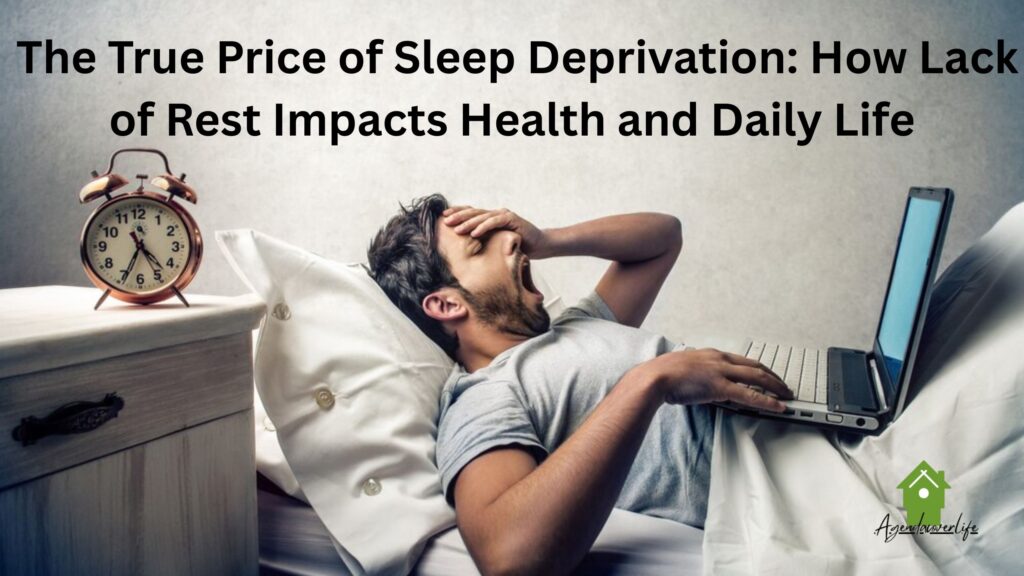
Sleep often takes a backseat in our modern, fast-paced lives. Whether it’s due to work obligations, family responsibilities, or digital distractions, many people routinely miss out on quality rest. But sleep isn’t just downtime—it’s a vital biological function, and the consequences of not getting enough of it can be far-reaching. From physical health to mental performance and emotional balance, the cost of lost sleep is more significant than most realize.
Physical Health Risks
When the body is deprived of adequate rest, it misses crucial time for recovery and healing. Consistently failing to get enough sleep has been associated with a higher risk of developing chronic illnesses such as heart disease, obesity, type 2 diabetes, and hypertension. During deep sleep stages, the body regulates blood pressure, manages hormone levels, and repairs tissue damage. Without enough sleep, these essential processes are disrupted.
Sleep loss also plays a role in weight gain. It throws off the hormones that control appetite—ghrelin and leptin—leading to increased hunger and cravings, especially for unhealthy foods. At the same time, fatigue can reduce motivation to exercise or make healthy choices, creating a cycle that’s difficult to break.
Cognitive and Emotional Toll
The brain is heavily impacted by lack of sleep. Concentration, decision-making, and memory all take a hit when the brain hasn’t had sufficient time to rest. Without adequate rest, it becomes more difficult to retain new information or focus on complex tasks.
Emotionally, people who are sleep-deprived are more prone to mood swings, irritability, and anxiety. This is because the brain’s ability to regulate emotions weakens when it’s running on empty. Over time, this emotional instability can escalate, making everyday stressors feel overwhelming.
Decreased Productivity and Performance
In professional environments, fatigue often leads to poor performance. Tired workers are more prone to making mistakes, missing deadlines, and struggling with efficiency. Their problem-solving skills and creativity are also diminished, and their reaction times slow down significantly. In high-risk professions—such as healthcare, law enforcement, or transportation—these lapses can have serious consequences, even putting lives in danger.
Additionally, insufficient sleep impairs long-term memory and learning. For anyone involved in ongoing education or skill development, sleep is a necessary component for retaining new knowledge and performing well.
Strained Personal Relationships
One of the less obvious but very real effects of poor sleep is the impact it can have on personal relationships. Sleep-deprived individuals tend to be more short-tempered and less patient, which can lead to unnecessary conflicts with partners, family members, or coworkers. In shared living spaces, poor sleep quality—especially if caused by an uncomfortable mattress or poor room setup—can affect both individuals. Simply upgrading your bedroom furniture to prioritize comfort and relaxation can make a noticeable difference in how well you rest and how you interact with others.
Mental Health Implications
Over time, chronic sleep deprivation can contribute to serious mental health issues. Research has shown a strong connection between poor sleep and an increased risk of anxiety, depression, and other mood disorders. Sleep is a time when the brain performs critical maintenance, including clearing away waste and regulating neurotransmitters. Without it, mental clarity and emotional stability begin to deteriorate.
In the long term, ongoing sleep issues can even contribute to neurodegenerative diseases. The brain needs sleep to remove harmful proteins and toxins, and without it, there’s a greater risk of cognitive decline.
Final Thoughts
The cost of inadequate sleep goes well beyond feeling tired. It can erode your health, reduce your ability to function effectively, and strain your relationships. While it might be tempting to cut back on sleep to squeeze more out of the day, doing so often backfires in the form of decreased well-being and productivity. Prioritizing rest—by establishing good sleep habits and creating a calming, comfortable sleep environment—is not a luxury; it’s a necessity for a balanced and healthy life.









